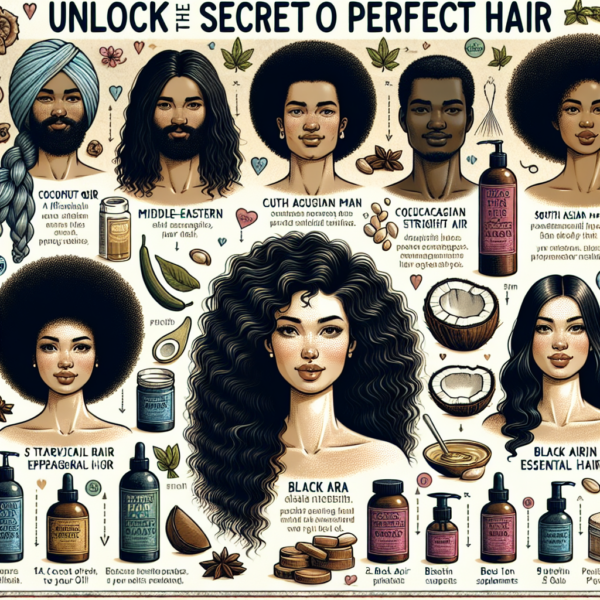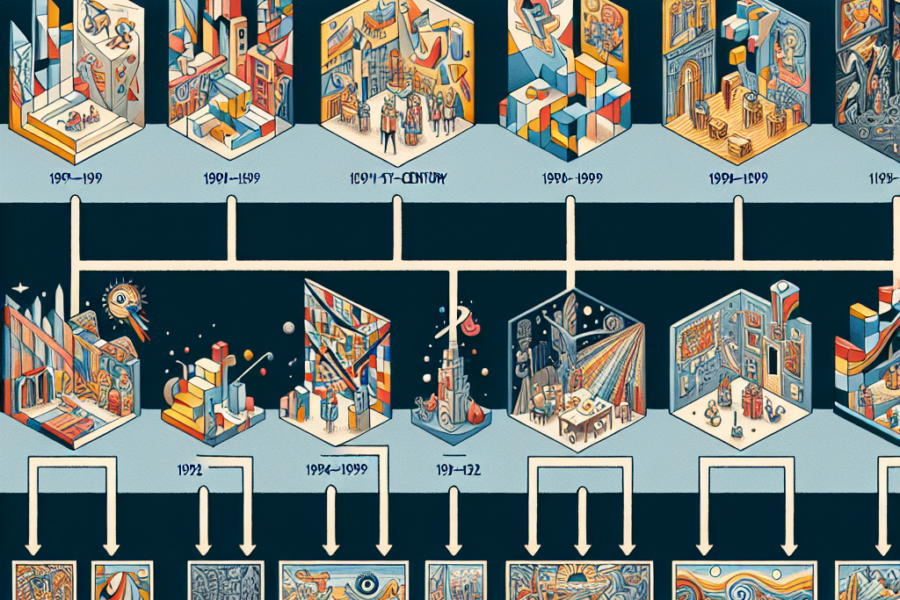Building Bridges: The Art of Cultivating Meaningful Relationships
Building meaningful relationships is not only essential for personal growth and fulfillment but also for success in various aspects of life. From professional networking to personal connections, forming strong bonds with others can open doors, provide support, and enrich our lives in countless ways.
In this article, we will explore the art of building bridges – the process of cultivating deep, meaningful relationships with others. We will discuss the importance of building bridges in both personal and professional settings, as well as practical strategies and tips for creating and maintaining these connections. Whether you are looking to strengthen existing relationships or forge new ones, this guide will provide you with the tools you need to build meaningful bridges that last a lifetime.
Why Building Bridges Matters
Building bridges, or forming connections with others, is more than just a social nicety – it is a fundamental aspect of human nature and crucial for our well-being. Research has shown that people with strong social connections are happier, healthier, and more successful in life.
In a professional context, building bridges can open up new opportunities, help you advance in your career, and provide support during challenging times. Whether you are looking for a new job, seeking mentorship, or hoping to expand your professional network, cultivating meaningful relationships with colleagues, clients, and industry peers can be a powerful tool for success.
In a personal context, building bridges can enrich our lives in profound ways. Meaningful relationships with friends, family members, and romantic partners can provide emotional support, companionship, and a sense of belonging. These connections are essential for our mental and emotional well-being, helping to reduce stress, boost self-esteem, and improve overall happiness.
Ultimately, building bridges is about creating a network of supportive, fulfilling relationships that can enhance every aspect of our lives. Whether you are looking to strengthen existing relationships or forge new ones, the following tips and strategies will help you cultivate meaningful connections with others.
Building Bridges in Professional Settings
In the professional world, building bridges is essential for success. Whether you are an entrepreneur, a freelancer, or a corporate employee, forming strong relationships with colleagues, clients, and industry peers can help you advance in your career, secure new opportunities, and navigate the challenges of the workplace.
1. Networking: One of the most effective ways to build bridges in a professional setting is through networking. Attending industry events, joining professional organizations, and connecting with colleagues on social media are all great ways to expand your professional network and meet new people. Networking can help you stay abreast of industry trends, find mentors or advisors, and uncover new job opportunities.
2. Building Rapport: Building rapport with others is key to forming meaningful relationships. Take the time to get to know your colleagues, clients, and industry peers on a personal level. Ask about their interests, hobbies, and career goals, and share a bit about yourself as well. Building rapport can help establish trust and mutual respect, laying the foundation for a strong, lasting relationship.
3. Offering Support: Building bridges is a two-way street, and offering support to others is a crucial part of the process. Whether it’s providing a listening ear, offering feedback on a project, or lending a helping hand during a busy time, showing support for your colleagues and clients can help deepen your relationships and create a sense of reciprocity.
4. Communication: Effective communication is essential for building bridges in a professional setting. Be clear, concise, and respectful in your communications with others, whether it’s in person, over email, or on the phone. Active listening, asking for feedback, and being open to constructive criticism can also help strengthen your relationships with colleagues, clients, and industry peers.
5. Follow-Up: Building bridges is an ongoing process, and following up with contacts is a key component of maintaining meaningful relationships. Sending a thank-you note after a meeting, congratulating a colleague on a success, or checking in with a client after completing a project can help keep your connections strong and show that you value the relationship.
Building Bridges in Personal Relationships
In addition to professional connections, building bridges in personal relationships is crucial for our overall well-being. Strong relationships with friends, family members, and romantic partners can provide emotional support, companionship, and a sense of belonging that is essential for our mental and emotional health.
1. Quality Time: Spending quality time with loved ones is a cornerstone of building bridges in personal relationships. Make time for regular get-togethers, whether it’s a weekly dinner with friends, a monthly date night with your partner, or a weekend visit with family members. Quality time together can strengthen your bonds and create lasting memories.
2. Emotional Support: Providing emotional support to loved ones is an important part of building bridges in personal relationships. Be there for your friends, family members, and partner when they need a listening ear, a shoulder to cry on, or a helping hand. Showing empathy, compassion, and understanding can help strengthen your relationships and create a sense of trust and security.
3. Communication: Effective communication is crucial for building bridges in personal relationships. Be honest, open, and transparent in your communications with loved ones, sharing your thoughts, feelings, and concerns openly and honestly. Active listening, expressing gratitude, and showing appreciation for your loved ones can also help deepen your connections and create a strong foundation of trust and respect.
4. Resolving Conflict: Conflict is a natural part of any relationship, but how you navigate and resolve conflict can determine the strength of your bond with others. Approach conflict with empathy, understanding, and a willingness to find common ground. Practice active listening, express your feelings and needs clearly, and work together to find solutions that benefit both parties. Resolving conflict in a healthy, constructive way can help strengthen your relationships and build trust and mutual respect.
5. Showing Appreciation: Building bridges in personal relationships is about showing appreciation for the people in your life. Take the time to express gratitude, say thank you, and acknowledge the efforts and contributions of your loved ones. Celebrate their successes, support them during difficult times, and show that you value and cherish the relationships you have. Small gestures of appreciation can go a long way in building strong, meaningful connections with others.
Building Bridges Across Cultures and Communities
In an increasingly globalized world, building bridges across cultures and communities is more important than ever. Forming connections with people from diverse backgrounds can help us expand our horizons, learn about different perspectives, and create a more inclusive, tolerant society.
1. Cultural Awareness: Building bridges across cultures starts with cultural awareness and sensitivity. Take the time to learn about different cultures, traditions, and customs, and approach interactions with an open mind and a willingness to learn. Be respectful of cultural differences, ask questions, and seek to understand the perspectives and experiences of others. Building cultural awareness can help you forge meaningful connections with people from diverse backgrounds and create a more inclusive, welcoming community.
2. Embracing Diversity: Embracing diversity is key to building bridges across cultures and communities. Celebrate the differences that make each of us unique, and seek out opportunities to connect with people from diverse backgrounds. Attend cultural events, join community organizations, and engage in conversations with people who have different perspectives and experiences than your own. Embracing diversity can help you broaden your horizons, challenge your assumptions, and build bridges that bridge divides and foster understanding and respect.
3. Collaboration and Cooperation: Building bridges across cultures and communities often requires collaboration and cooperation. Work together with people from diverse backgrounds to address common challenges, find common ground, and create solutions that benefit everyone. Engage in dialogue, listen to different perspectives, and seek out opportunities for partnership and collaboration. By working together, you can build bridges that bring people together, foster cooperation, and create a more inclusive, harmonious society.
4. Empathy and Understanding: Building bridges across cultures and communities is about empathy and understanding. Put yourself in the shoes of others, listen to their stories, and try to see the world from their perspective. Show empathy, compassion, and respect for the experiences and struggles of people from diverse backgrounds, and seek to build connections based on shared values, experiences, and aspirations. Empathy and understanding can help you build bridges that transcend cultural divides and create a sense of unity and solidarity.
5. Building Trust: Building bridges across cultures and communities requires trust. Be honest, reliable, and respectful in your interactions with people from diverse backgrounds, and strive to build trust through your actions and words. Show that you are committed to fostering understanding, inclusivity, and collaboration, and work to create a safe, welcoming space where people from all walks of life can come together and connect. Building trust can help you bridge cultural divides, create meaningful relationships, and foster a sense of unity and common purpose.
Building Bridges Online
In today’s digital age, building bridges online is an essential skill for forming connections and cultivating meaningful relationships. With social media, email, and other online platforms, we have more opportunities than ever to connect with people from around the world and build bridges that transcend physical boundaries.
1. Engage on Social Media: Social media platforms like Facebook, Twitter, and Instagram are great tools for building bridges online. Follow people and organizations that share your interests, engage in conversations, and share your own thoughts, ideas, and experiences. Social media can help you connect with like-minded individuals, build a community around shared interests, and create meaningful relationships that transcend geographical barriers.
2. Participate in Online Communities: Online communities and forums are another great way to build bridges online. Join groups and communities that align with your interests and values, engage in discussions, and connect with people who share your passions and goals. Online communities can provide support, inspiration, and opportunities for collaboration, helping you form meaningful relationships with people from around the world.
3. Attend Virtual Events: Virtual events, such as webinars, seminars, and conferences, are a great way to build bridges online and connect with people in your industry or area of interest. Attend virtual events, participate in discussions, and engage with speakers and attendees to expand your network and build meaningful relationships. Virtual events can provide opportunities for learning, networking, and collaboration, helping you connect with people who share your goals and aspirations.
4. Share Your Story: Building bridges online is about sharing your story and authentic self with others. Be open, vulnerable, and genuine in your interactions, sharing your experiences, thoughts, and feelings with your online community. By sharing your story, you can create connections with people who resonate with your journey, experiences, and values, and build bridges that transcend the digital realm.
5. Be Mindful of Online Etiquette: Building bridges online requires mindfulness and respect for others. Be mindful of online etiquette, such as being polite, respectful, and considerate in your interactions with others. Avoid engaging in negative or divisive conversations, and focus on building bridges that bring people together, foster understanding, and create a sense of community and connection.
Building Bridges That Last a Lifetime
Building bridges is a lifelong process that requires patience, effort, and commitment. Whether you are building bridges in a professional context, in personal relationships, across cultures and communities, or online, the following tips can help you create meaningful connections that last a lifetime.
1. Be Authentic: Building bridges starts with being authentic and true to yourself. Be honest, genuine, and transparent in your interactions with others, sharing your thoughts, feelings, and experiences openly and honestly. Authenticity can help you build trust, create meaningful connections, and foster lasting relationships based on mutual respect and understanding.
2. Show Empathy: Empathy is a key ingredient in building bridges that last a lifetime. Put yourself in the shoes of others, listen to their stories, and try to understand their perspective and experiences. Show empathy, compassion, and understanding in your interactions with others, and seek to build connections that are based on shared values, experiences, and aspirations.
3. Be a Good Listener: Building bridges requires effective communication, and being a good listener is essential. Listen attentively to others, ask questions, and engage in active listening to show that you value their thoughts, feelings, and perspectives. Being a good listener can help you build rapport, deepen your relationships, and create a sense of trust and mutual respect.
4. Practice Gratitude: Building bridges that last a lifetime involves showing gratitude and appreciation for the people in your life. Take the time to express thanks, say thank you, and show appreciation for the efforts and contributions of others. Celebrate their successes, support them during difficult times, and show that you value and cherish the relationships you have. Gratitude can help you build strong, meaningful connections with others that stand the test of time.
5. Stay Connected: Building bridges is an ongoing process that requires staying connected with others. Keep in touch with friends, family members, colleagues, and industry peers through regular check-ins, phone calls, and in-person meetings. Stay connected with people from diverse backgrounds and communities through online platforms, virtual events, and social media. Staying connected can help you nurture your relationships, deepen your connections, and build bridges that last a lifetime.
Conclusion
Building bridges is an art that can enrich every aspect of our lives. Whether you are looking to strengthen existing relationships, forge new connections, or bridge divides across cultures and communities, the process of cultivating meaningful relationships is essential for our well-being, success, and happiness.
By following the tips and strategies outlined in this guide, you can build bridges that last a lifetime – connections that are based on authenticity, empathy, communication, and gratitude. Whether you are building bridges in a professional context, in personal relationships, across cultures and communities, or online, the principles of building meaningful connections remain the same.
So take the time to invest in building bridges with others, and watch as your relationships flourish, your opportunities expand, and your life becomes enriched with the depth, meaning, and connection that comes from cultivating meaningful relationships that stand the test of time. Remember, building bridges is not just an art – it is a fundamental aspect of being human, and one that can bring us closer together, foster understanding, and create a sense of unity and community that transcends boundaries and differences.








Leave a Comment